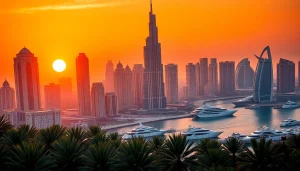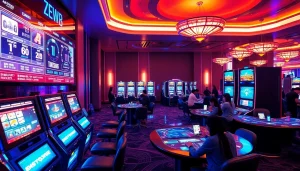Essential Travel to Dubai: 7 Expert Tips for Your Journey in 2025

Understanding the Essentials of Traveling to Dubai
Prerequisites for Travel to Dubai
When planning your Travel to Dubai, it’s essential to know the prerequisites that ensure a seamless visit. Most travelers will require a valid passport with at least six months of validity remaining from the date of entry. Certain nationalities can obtain a visa on arrival, while others may need to apply for a visa before departure. The United Arab Emirates (UAE) provides a comprehensive list of countries eligible for visa-on-arrival and specific requirements for each nationality. It’s advisable to check the U.S. Department of State’s website or the UAE’s official governent portal for the latest immigration updates.
Flight Arrangements for a Smooth Journey
Dubai is well connected to cities around the globe, making flight arrangements relatively straightforward. Major airlines such as Emirates, Etihad, and Qatar Airways offer direct flights to Dubai International Airport (DXB). It is crucial to compare prices and book tickets well in advance, especially if you plan to travel during peak seasons. Utilize flight comparison websites to find the best deals, and consider setting fare alerts to snag lower prices. Flying into DXB provides travelers with immediate access to a plethora of amenities, including duty-free shopping and a range of dining options, setting the stage for a pleasant start to your trip.
Accommodation Options That Suit Every Budget
Dubai caters to a wide range of accommodation preferences, from ultra-luxurious resorts like the Burj Al Arab to budget-friendly hotels and hostels. Booking in advance can lead to significant savings, particularly during the winter months when tourism peaks. Options such as Airbnb offer unique local experiences, while hotels often provide package deals that include meals and excursions. Key neighborhoods to consider include:
- Downtown Dubai: Home to the Burj Khalifa and Dubai Mall.
- Dubai Marina: Offers stunning waterfront views and numerous dining options.
- Old Dubai: Perfect for those wanting to explore the historical aspects of the city.
Weather and Best Times to Travel to Dubai
Understanding Dubai’s Seasonal Climate
Dubai experiences a desert climate characterized by extremely hot summers and mild winters. The peak tourist season runs from November to March when temperatures range between 22°C to 30°C (72°F to 86°F), making it ideal for outdoor activities. Conversely, summer months (May to September) can see temperatures soaring above 40°C (104°F), necessitating indoor entertainment or evening excursions. Understanding these seasonal variations will help you plan your itinerary accordingly, ensuring an enjoyable stay.
Events and Festivals to Experience
Dubai is a melting pot of cultures, and annual events and festivals celebrate this diversity. The most notable include:
- Dubai Shopping Festival: Held in January, this month-long extravaganza features unbeatable sales and promotions.
- Dubai Food Festival: Celebrated each February, showcasing the culinary diversity of Dubai.
- Eid Al Fitr and Eid Al Adha: Religious festivals that include fireworks, feasts, and various festivities.
Attending these events can enrich your travel experience, granting deeper insights into the culture and traditions of Dubai.
How to Prepare for Extreme Heat
For those traveling during the hotter months, it’s crucial to take precautions. Here are some practical tips:
- Stay hydrated; carry a water bottle with you.
- Dress in light, breathable clothing to help regulate body temperature.
- Plan outdoor activities in the early morning or late evening to avoid peak heat.
Knowing how to navigate the heat will ensure that your adventures in Dubai remain enjoyable and safe.
Top 5 Attractions You Must Visit in Dubai
Historical Sites to Explore
Diving into Dubai’s rich history is a must, and several landmarks reveal its past:
- Al Fahidi Historical Neighborhood: Discover traditional wind-tower architecture and art galleries.
- Dubai Museum: Located in Al Fahidi Fort, it provides an engaging insight into the cultural heritage of Dubai.
- Sheikh Saeed Al Maktoum’s House: The former residence of the ruler’s grandfather showcases the city’s evolution.
Modern Marvels That Define Dubai
Dubai is renowned for its contemporary architecture and engineering feats. Iconic sites include:
- Burj Khalifa: The tallest building globally, offering panoramic views from its observation decks.
- Dubai Mall: A shopping oasis that also houses an aquarium and skating rink.
- Burj Al Arab: Often described as the world’s most luxurious hotel, its distinctive sail shape is synonymous with Dubai.
Unique Cultural Experiences in Dubai
For those seeking authentic cultural experiences, consider:
- Dubai Opera: Renowned for its architecture and a vibrant schedule of performances.
- Desert Safari: Offers a glimpse into traditional Bedouin culture, complete with camel rides and henna painting.
- Dubai Frame: An architectural wonder that provides a visual connection between the old and new Dubai.
Travel Tips for Safety and Security in Dubai
Understanding Local Laws and Regulations
Respecting local laws is vital for a safe stay in Dubai. The UAE has strict regulations regarding public conduct, alcohol consumption, and dress codes. Familiarizing yourself with these laws will help avoid misunderstandings. While Dubai is often regarded as one of the safest cities in the world, it’s crucial for travelers to adhere to cultural norms and regulations to ensure a pleasant experience.
Safety Tips for Travelers and Tourists
To ensure your safety while navigating Dubai, keep in mind the following tips:
- Stay aware of your surroundings, especially in crowded areas.
- Keep your belongings secure and avoid flashing valuables.
- Use reputable transport services like taxis or ridesharing apps.
Emergency Contacts and Resources
Familiarize yourself with local emergency numbers:
- Police: 999
- Ambulance: 998
- Fire Department: 997
In addition, ensure that you have the contact information for your country’s embassy or consulate readily accessible.
Planning Your Budget for Travel to Dubai
Estimating Expenses for Accommodation and Transportation
Understanding the cost of travel to Dubai involves accounting for accommodation, food, and transportation. Hotel prices can fluctuate significantly based on the season, ranging from budget hostels to opulent resorts. Transportation options like the metro, trams, and taxis make getting around easy, and setting a daily budget can help manage expenses effectively.
Free and Affordable Activities in Dubai
Even if you’re on a budget, there are plenty of free or low-cost activities. Consider visiting public beaches like Kite Beach, exploring parks and fountains, or wandering through the traditional souks for an authentic shopping experience. Many cultural events and festivals also provide free access to entertainment, allowing you to experience the city without a hefty fee.
Currency Exchange and Best Places to Shop
The currency in Dubai is the UAE Dirham (AED). Currency can be exchanged at various locations, including airports, banks, and exchange bureaus. ATMs are widely available, and using credit or debit cards is common. For shopping, the Gold Souk and various malls provide unique experiences, offering everything from luxury goods to local handicrafts.






